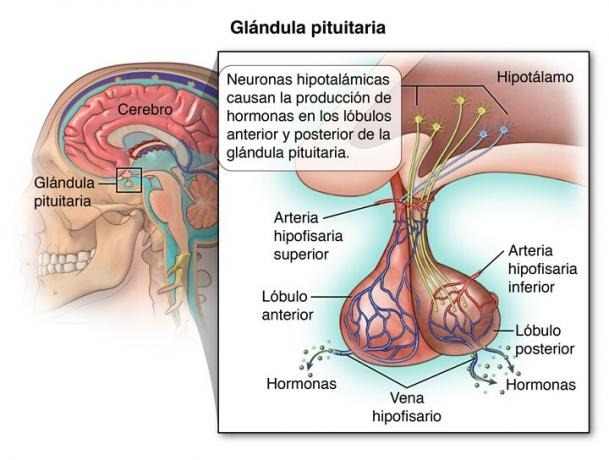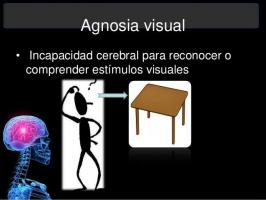Pituitary (pituitary) gland: definition and functions
All the mental processes that occur from the nervous system of the human being do not depend solely on the activity of the neurons.
Between the parts of the brain, there are several whose activity depends directly on what is happening in the endocrine system, that is, the set of organs that secrete hormones.
The pituitary gland (or pituitary) it is precisely one of the structures of our brain in which bridges the gap between the world of hormones and the world of nerve impulses that run through our neurons. Thanks to the pituitary gland, what we think and perceive through the senses has an impact on the way we enter one or another emotional state.
What is the pituitary or pituitary gland?
The pituitary gland is an endocrine gland that helps us make all those hormonal responses that occur in the organism are well coordinated with each other and keep us in a state of harmony in relation to what happens in the environment.
The pituitary gland is one of the areas through which orders to produce certain hormones are quickly transmitted when certain stimuli are detected in the environment
. For example, if we see a snake, this visual information, before reaching the areas of the cerebral cortex tasked with converting this signal into something that can be thought of in abstract terms, it passes through a region call thalamus.The thalamus processes this visual information and, by detecting information patterns that relate this data to danger, transmits a signal that will pass quickly to the pituitary, located very close, and this will begin to secrete hormones related to the use of force, the speed of reaction and the force. These hormones will navigate the bloodstream and activate other glands throughout the body., with which it will be possible to make the whole organism find itself in a certain activation situation for several minutes.
All this, without waiting for the cerebral cortex to have processed the visual information and the reasoning that snakes are poisonous has been produced.

The pituitary gland and the limbic system
The example we just saw is a sample of the way the pituitary converts signals nerves in production of hormones that remain for several seconds floating in the torrent blood. Whereas each "action" of a neuron lasts thousandths of a second, the hormonal effects of the pituitary gland are longer lasting, although its effects are also less precise.
While neurons connect only with some other nerve cells, and not all, hormones remain navigating uncontrollably in the blood, activating areas of the body far removed from each other, and in a more timeframe large. That is why, once we have finished running, not only do we find it more difficult to breathe for the next few seconds or minutes, but our way of thinking is also altered; it is a collateral effect of hormones, something that is not useful to us but that happens anyway due to the wide temporal scope of the endocrine system.
The pituitary and Descartes
The pituitary gland is one of the parts of the brain that is most centered. In fact, it is located just below the hypothalamus. another of the structures that make up the limbic system.
It is partly for this that the famous philosopher Rene Descartes he identified it as the possible place where, according to his dualistic perspective, the soul (res cogitans) interacts with the matter of the human body (res Amplia). Of course, this theory is rejected by the scientific community, since it does not really provide an explanation about the functioning of the pituitary.
Concluding
The pituitary gland is an example that psychological processes are totally linked to hormonal processes and, therefore, also to the emotional aspect of our personality.
Taking this into account is important, as it reminds us to what extent rationality and irrationality are not two compartments watertight and, also, that there are certain automatic emotional responses that do not depend on our way of reflecting on what we it happens.

